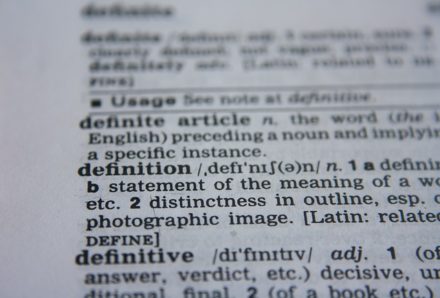“In terms of OWI law, what does operating mean?”
Operating does not mean driving. In short, operating means being in control of a car or truck in an area accessible to motor vehicles.

“Operating” for OWI Charges is Broadly Defined
A frequently litigated issue in OWI cases (DUI or drunk driving) is whether the vehicle was being “operated.” In a recently published opinion of the Michigan Court of Appeals, Plymouth v. Longway, the term “operated” was discussed and further defined.
Ms. Longway was charged with operating a vehicle while intoxicated (OWI). Her criminal defense attorney moved to dismiss the charge, arguing that she was not “operating” the vehicle. The district court denied the defendant’s motion, but the circuit court reversed and ordered that the charges be dismissed. In the misdemeanor case, the circuit court judge ruled that the defendant was not “operating” the vehicle because it had not been moved.
On appeal of the prosecution, the Court of Appeals reversed the circuit court’s decision and remanded for reinstatement of the charge. The court ruled that the defendant did operate the vehicle because she had “actual physical control” of the car. The court ruled that a person clearly has actual physical control of a vehicle when starting the engine, applying the brakes, shifting the vehicle from park to reverse, and then shifting back to park…even if the vehicle never actually moves.
In making this decision to reverse the lower court’s ruling, the Court of Appeals noted that the Michigan Supreme Court has defined “operating” as follows:
“Once a person using a motor vehicle as a motor vehicle has put the vehicle in motion, or in a position posing a significant risk of causing a collision, such a person continues to operate it until the vehicle is returned to a position posing no such risk.”
Under MCL 257.625(1)
Whether licensed or not, a person shall not operate a vehicle upon a highway or other place open to the general public or generally accessible to motor vehicles, including an area designated for parking vehicles within this state if the person is OWI.

OWI Terms are Defined by Statute:
Some terms under Michigan law are undefined and must be interpreted using their plain, ordinary meaning. Conversely, others are specifically defined by statute and have a specified meaning. “Operating” is being in actual physical control of a vehicle regardless of whether the person is licensed under this act as an operator or chauffeur.

Defending Against an “Operating” Allegation
An OWI defense attorney can employ several strategies to challenge the allegation that their client was “operating” a vehicle while under the influence. This aspect of DUI charges often hinges on the specific definition of “operation.” In Michigan, operation is defined as simply being in physical control of a vehicle, regardless of whether it is moving.
A skilled OWI defense attorney, such as those with LEWIS & DICKSTEIN, P.L.L.C., could argue their client was not in actual physical control of the vehicle at the time of the arrest. For example, if the client was found asleep in a parked car with the engine off, the attorney may argue that the client was using the vehicle as a shelter, not operating it. It may be crucial to establish where the keys were, whether the engine was running, where the client was found in the vehicle, and if there was any intention to drive.
The attorney could also argue that there is insufficient evidence that the client was in control of the vehicle. Suppose the client was found outside the vehicle, even if intoxicated and with the keys in their hand. In that case, the attorney might argue that possessing the keys outside of the car doesn’t conclusively prove they were operating the vehicle when intoxicated.
Sometimes, the defense might also rely on the identification defense, AKA the “it wasn’t me” argument. In scenarios where the car was found crashed or parked, but the defendant wasn’t in the vehicle at the time police arrived, the attorney might argue there’s no proof that the defendant was the one operating the vehicle.
Finally, if the police didn’t observe the client operating the vehicle but instead arrived after the fact, the defense might argue there’s no direct evidence to prove the defendant drove the car.
“If I intend to plead guilty, is it worth fighting a case?”
Why might you want to fight a case, including arguing about whether you were operating, if you intend to plead guilty? Choosing to initially fight an OWI criminal case, even to eventually plead guilty, can be a strategic decision based on several reasons. A defendant might choose this route to gain leverage in plea negotiations. By presenting a strong defense with a reputable OWI defense attorney, such as those with LEWIS & DICKSTEIN, P.L.L.C., and potentially challenging the prosecution’s case, a defendant might put pressure on the prosecutor to offer a more favorable plea deal than what might have been initially on the table. This could include reduced charges, a lower sentence, or even dismissal of some charges.
Additionally, contesting the case allows the defense team to thoroughly review the prosecution’s evidence, including police reports, witness statements, and physical evidence. This review process might uncover issues with the evidence or its collection that could weaken the prosecution’s case. For instance, if there were procedural errors in the evidence collection or if the defendant’s rights were violated during the arrest, some or all of the evidence could be suppressed.
Further, the defendant may wish to delay a guilty plea to see if any other factors might change the landscape of their case over time. This can include the availability or credibility of witnesses, new evidence, or even changes in the law or public opinion that could impact the outcome. Formulating a defense strategy with a skilled OWI defense attorney is best to ensure the best steps are taken to reduce the charges and sentence.

Top OWI Defense Attorneys in Michigan – Call us Today
The Defense Team with LEWIS & DICKSTEIN, P.L.L.C. has decades of experience successfully defending clients charged with all alcohol and drug-related driving offenses. We have an unparalleled track record of achieving extraordinary results. If you want a team of lawyers acting in unison and collaborating to get you the best possible outcome, call us for a confidential case evaluation.
If you are charged with OWI, DUI, OWPD, or another alcohol or drug-related driving felony or misdemeanor offense, please call LEWIS & DICKSTEIN, P.L.L.C. for a free consultation. We will find a way to help you!
Call us today at (248) 263-6800 for a free consultation or complete an online Request for Assistance Form. We will contact you promptly and find a way to help you.












